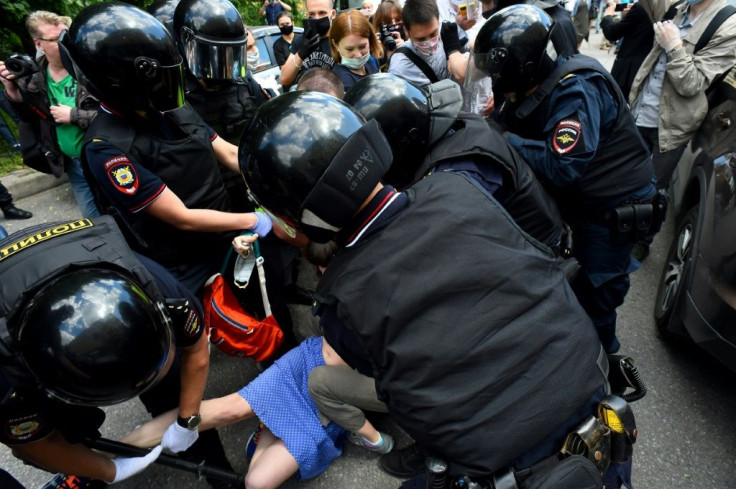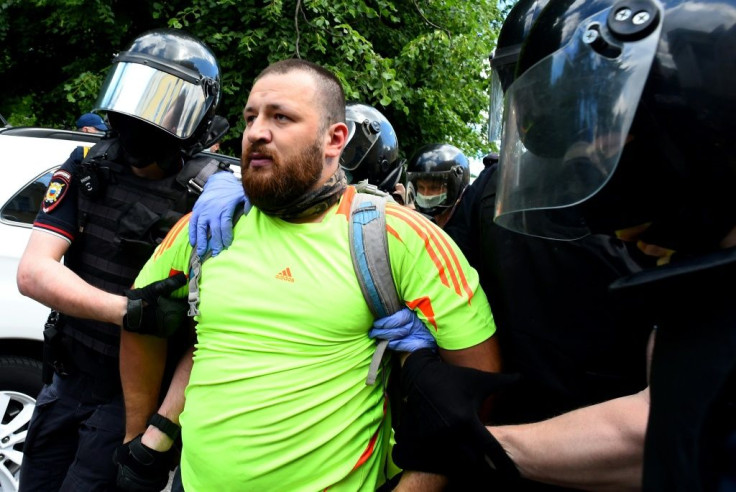Russian Court Hands Down Heavy Sentences To Leftists

A Russian court on Monday sentenced two leftist activists to long prison terms on controversial terror charges in a case that has sparked widespread criticism.
Viktor Filinkov, 25, and Yuli Boyarshinov, 28, were accused of belonging to the "Network" terrorist group, which prosecutors said plotted an armed uprising during the 2018 presidential election and terror attacks during that year's World Cup.
Filinkov was jailed for seven years while Boyarshinov was handed a sentence of five years and six months, an AFP reporter in the Saint Petersburg military court said.
The maximum sentence for affiliation with a terror group in Russia is 10 years.
Supporters of the two men alleged they were victims of a conspiracy fabricated by the security services, in addition to law enforcement overreach and torture.
Both men intially pleaded guilty, but Filinkov retracted his confession after saying it was given under duress and that he was beaten and subjected to electric shocks in detention.

"The documents were false; all the confessions were extracted by torture," said Boyarshinov's mother, Tatiana Koplyova, adding that the men had signed confessions "because no one wanted to die".
Dozens of their allies protested outside the court on Monday, setting off a smoke bomb and scattering leaflets reading "Russia will be free!"
Police detained more than 20 people near the courthouse, rights group OVD-Info said.

The two Saint Petersburg residents were arrested in January 2018 for allegedly being members of the terror group and storing illegal explosives.
A court in the central Russian city of Penza in February jailed seven co-defendants in the same case for between six and 18 years, on charges including terrorism, the illegal possession of weapons and explosives and attempted drug trafficking.
That verdict sparked an outcry, with rights groups saying the young defendants had been convicted of organising a non-existent "terrorist" group and tortured to incriminate themselves in a throwback to Stalin-era practices.
Hundreds of people rallied outside the FSB security services headquarters in Moscow earlier this year against the long jail terms handed down in the Penza court.
Groups of scientists, doctors and teachers have signed petitions calling on the authorities to release those convicted in the case.
Memorial, a top rights group, has alleged a clear political motive behind the Network case, pointing to increasing "repression against anarchists and anti-fascists" in Russia.
Demonstrators voiced similar concerns after the verdict was read in Saint Petersburg on Monday.
"I'm sure this case was fabricated by the security services," said Stepan Ilyin, a 21- year-old protester.
"We must not be silent. We must come and protest. It is our duty," he told AFP.
© Copyright AFP {{Year}}. All rights reserved.




















